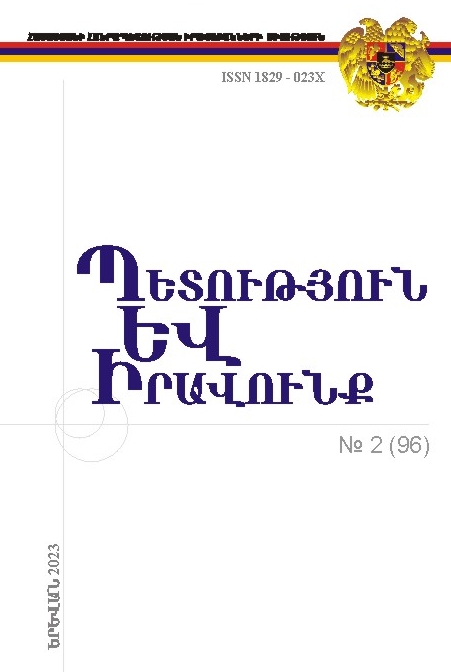FEATURES OF THE REVIEW OF JUDICIAL ACTS IN THE CASSATION PROCEDURE ACCORDING TO THE NEW CRIMINAL PROCEDURE CODE OF THE REPUBLIC OF ARMENIA
DOI:
https://doi.org/10.46991/S&L/2023.96.022Keywords:
judicial review, cassation, cassation protest, grounds of protest, fundamental violations of the rights of the accused, exclusive proceedingsAbstract
On the basis of a comparative legal analysis, the article discusses the specifics of the revision of judicial acts in cassation in the light of the new Criminal Procedure Code, highlights gaps in the Code, analyzes certain controversial issues related to cassation proceedings, suggests ways to improve legislation, as well as practical proposals for the application of relevant criminal procedure norms․
In the new Code of Criminal Procedure of the Republic of Armenia, the institution of review of judicial acts includes four types: review of acts by appeal, cassation procedure, special procedure and exceptional procedure. It is noteworthy that a separate chapter is devoted to the general conditions (procedure) of judicial review. At the same time, a model has been established that makes it possible to distinguish between appellate and cassation proceedings. There are also grounds for reviewing acts that have not entered into legal force in a special manner for appeal and, separately, for cassation proceedings.
It is important to emphasize that precedent decisions of the Court of Cassation, being endowed with the attribute of binding, must ensure the predictability of justice, legal certainty, the presence of a uniform and effective judicial practice, and the ability to overcome legislative inaccuracies and gaps.
Downloads
Published
Issue
Section
License
Copyright (c) 2023 State and Law

This work is licensed under a Creative Commons Attribution-NonCommercial 4.0 International License.

